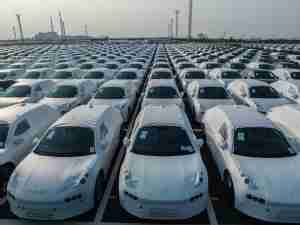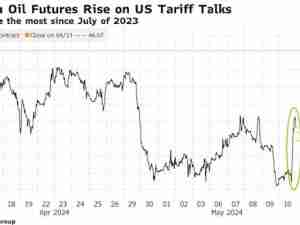Surging China-Hong Kong Trade Raises Doubts Over Recovery
By: Bloomberg News | Jan 13 2016 at 04:24 AM | International Trade
China exports to Hong Kong rose 10.8 percent from a year earlier for the biggest gain in more than a year, making the city the biggest destination for shipments last month and spurring renewed skepticism over data reliability and the broader recovery in the nation’s outbound trade.
Exports to Hong Kong rose to $46 billion last month, according to General Administration of Customs data released Wednesday. That was the highest value in almost three years and the biggest amount for any December period in the last 10 years, customs data show. Imports from Hong Kong surged 65 percent, the most in three years, to $2.16 billion.
Economists said the surprise gains may harken back to past instances of phony invoicing and other rules skirted to escape currency restrictions. China’s government said in 2013 some data on trade with Hong Kong were inflated by arbitrage transactions intended to avoid rules, an acknowledgment that export and import figures were overstated.
The increase in exports to Hong Kong and China’s imports from the city probably indicate "fake invoicing," said Iris Pang, a senior economist for Greater China at Natixis SA in Hong Kong. Invoicing of China trade should be larger in December because of the wider gap between the onshore yuan and the offshore yuan traded in Hong Kong, she said.
China’s exports to the Special Administrative Region of more than 7 million people eclipsed the $35 billion tallies last month for both the U.S. and the European Union, the data show. Exports to Brazil, Canada, Malaysia, Russia all dropped more than 10 percent.
The imports gain "points to potential renewed fake trade activities," said Larry Hu, head of China Economics at Macquarie Securities Ltd. in Hong Kong. When the yuan rose in 2013, exports to Hong Kong were inflated artificially, he said, and "now it’s just the opposite."
China’s total exports rose 2.3 percent in yuan terms from a year earlier, the customs said, after a 3.7 percent drop in November. Imports extended declines to 14 months.
Temporary Recovery
The recovery in exports in December may prove to be a temporary one due to a seasonal increase at the end of the year, and it doesn’t represent a trend, a spokesman for customs said after the Wednesday briefing. A weak yuan will help exports, but that effect will gradually fade, the spokesman told reporters in Beijing.
Morgan Stanley economists led by Zhang Yin in Hong Kong also said in a note Wednesday that the higher-than-expected trade growth may have been affected by currency arbitrage. Overall external demand remained weak, as shown by anemic export data reported by South Korea and Taiwan, he said.
Because enforcement efforts on irregular capital outflows have been stepped up recently and the spread between the onshore and offshore yuan has narrowed, "the potential distortion will likely dissipate in the coming months," the analyst said.
—With assistance from Xiaoqing Pi, Ailing Tan and Adam Haigh.
To contact Bloomberg News staff for this story: Kevin Hamlin in Beijing at [email protected] To contact the editors responsible for this story: Kevin Hamlin at [email protected]; Malcolm Scott at [email protected] Jeff Kearns








